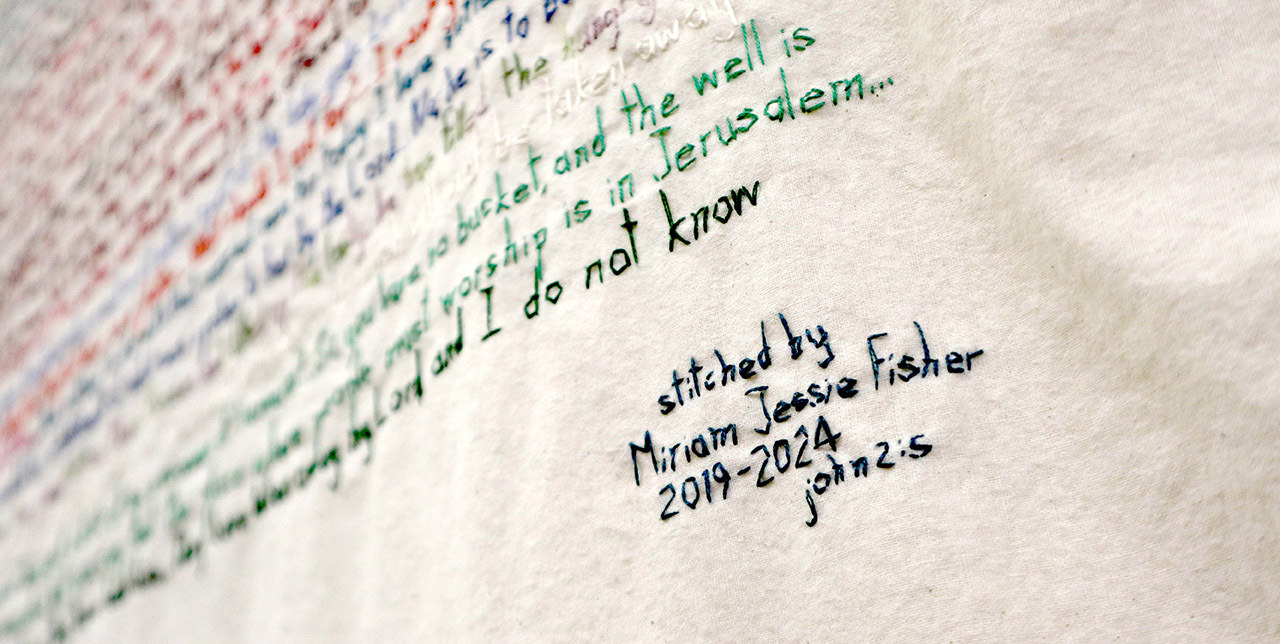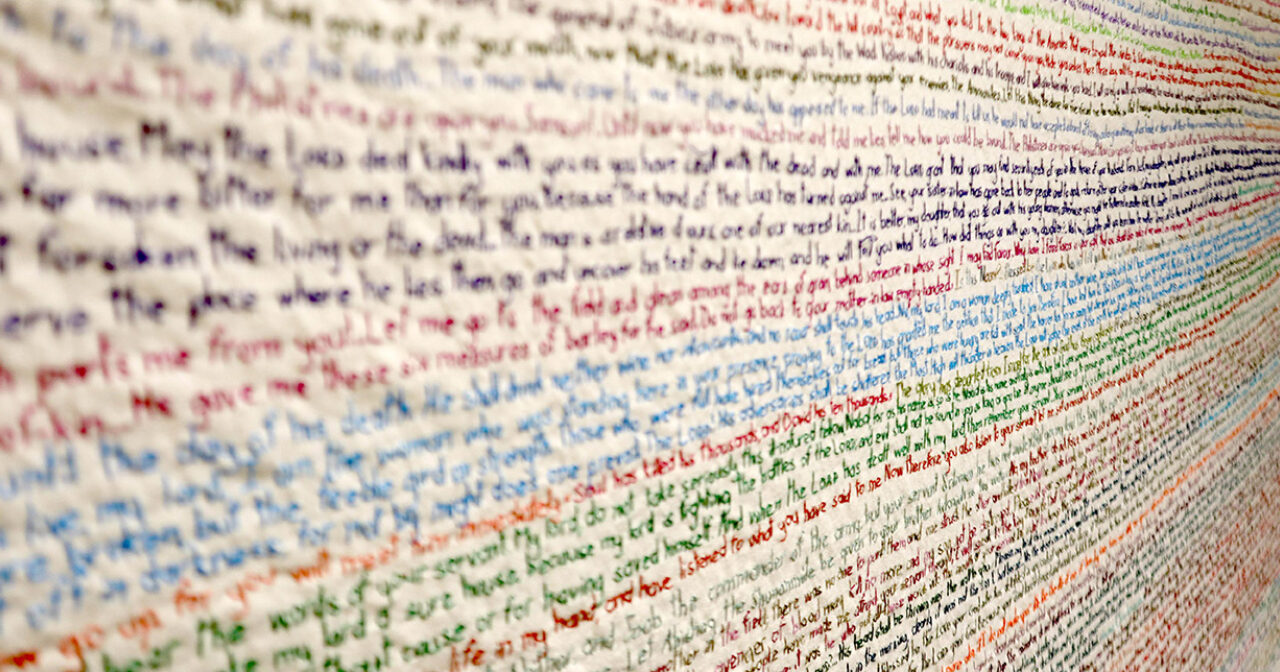17 October 2024
8,999 handstitched words of women, from the Bible
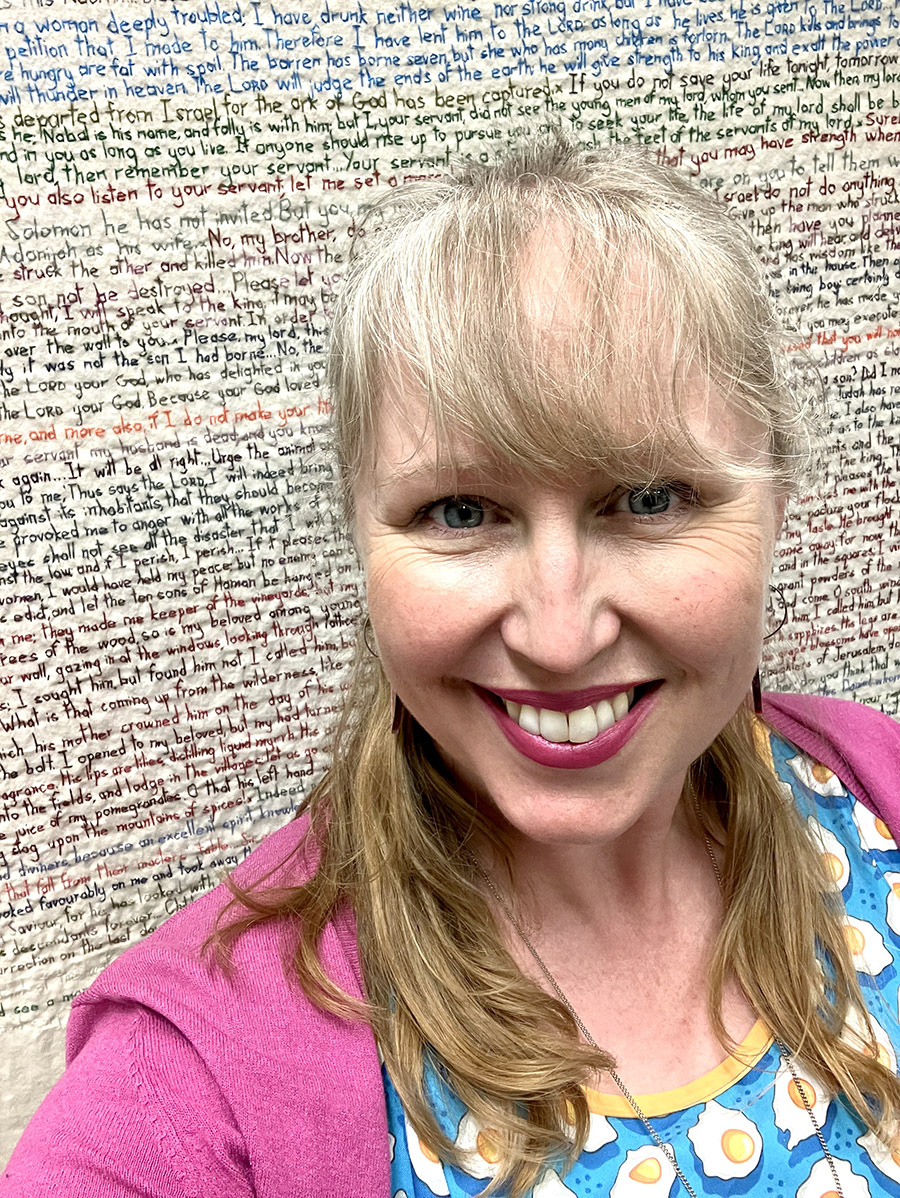
Women’s Words Project: 8,999 words (plus the stitched signature at its conclusion)
Miriam Jessie Fisher
This project captured on a 3m wide piece of calico captures all the direct speech by women in the Bible. The work used Lindsay Hardin Freeman’s book Bible Women and therefore used her and her team’s same criteria. The book uses the NRSV version of the Bible.
Miriam Jessie Fisher, who made the work, has used stitching and poetry writing as part of her spiritual practice for some years and felt ‘prompted’ to undertake the project of recording women’s words in hand stitching from her holy book but initially dismissed it as a project that would: take too long and be impossible to do with accuracy.
As a (developing) theologian Miriam Jessie sees this work as neither exegesis or eisegesis (as approved and disapproved theological approaches) but as a way to let the text, and the women, surprise her and be heard on their own terms without being drowned out because of their paucity inside the larger work of Scripture. This is not the only way she interacts with Scripture but she holds that the text speaks and our role is to listen, wrestle and be read by the text.
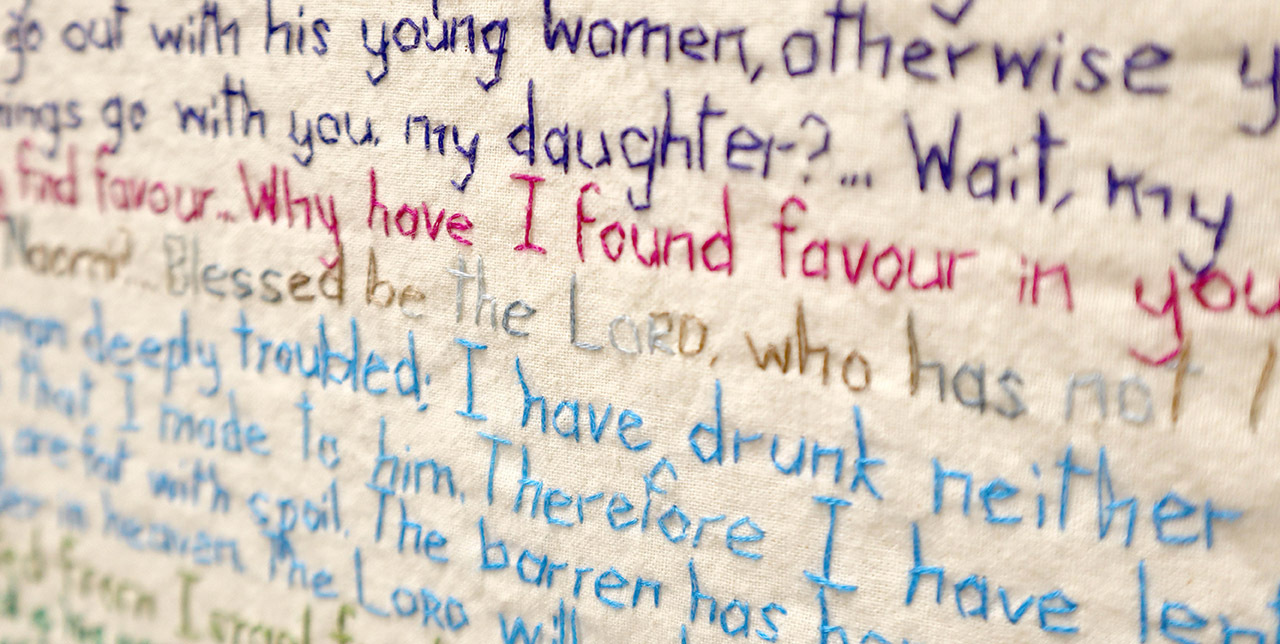
She says,
It
has also been a heart breaking work. So many of the issues of the lives
of women are involved with tragedy, poverty and exploitation. I
strongly believe if we can hear their stories, listen to their voices we
will realise these women are still speaking to us today and asking us
to see other women, the world over – our friends, our communities, our
nations and those we do not know – with the same kind of ear and
attention.
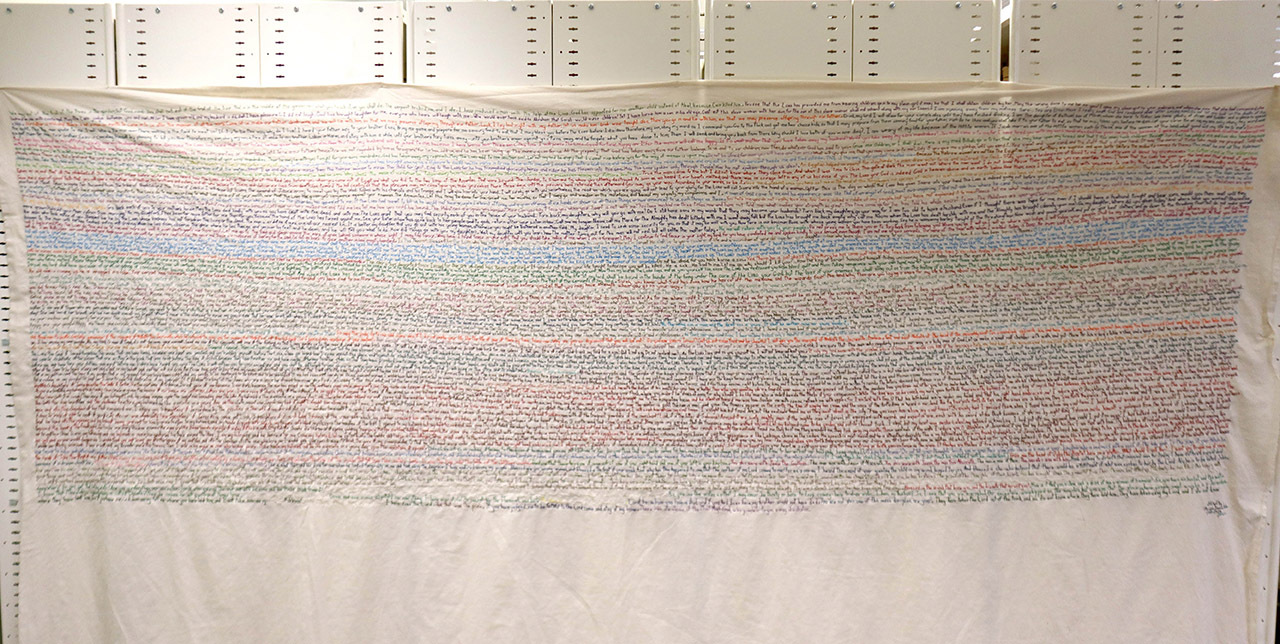
The project was started in April 2019 and has been slowly stitched in the living room, airport lounges, retreats, noho marae and locations of Miriam Jessie’s life. The work was completed in September 2024. Each woman has a different colour of thread, and each will also eventually have a piece of written poetry. She deliberately allowed herself to do other creative projects alongside the work including her Masters in Theology which included a set of textile works, and poetry writing. Miriam Jessie is not a one project kind of person!! Alongside the stitching she has been writing poems to go with each woman as an act of spiritual practice, witness, and solidarity. These written works have become their own kind of holy work as prayer, hope, and at times anger and grief.
The back of the work with its mess of stitches and knots is a kind of glossolalia and hints at the unspoken language of edification that this work has been. Miriam Jessie would love for this work to be seen and touched by others. She hopes it will witness to the many silent and unheard words from women, and those faithful to the book as well as inviting people to consider these stories – the well-known and the barely known – again. To return to the characters of scripture and to understand that we each belong to this story, and to these beautiful, imperfect, dearly beloved characters too.
As part of the work Miriam Jessie also felt to include some of the words of Jesus spoken in interaction with some of the women. Just 98 words of Jesus have been captured and these have been done in the same colour as the fabric – inviting the viewer/reader to lean in very close. This is both a testimony to the way Jesus turns up in the life of faith, and an invitation to understand that leaning in to hear God’s voice is an essential element of faith.
I think Jesus demonstrates a complete at homeness with women. He treats them not just with honour and dignity but as people capable of belief, acts of extraordinary faith and intelligent and important. I make space for Jesus among the words of women and see no incongruence with it. Perhaps for those who do feel upset or disrupted by this or by the words I have chosen it might be an invitation to be curious about why that is for you.
This book, and these women are formational for me. They are my guiding story, a story I believe shapes my life and as such I have both a duty and delight to be with this story in all the ways my life allows – heart, head and hands.
I began this work as a work of formation. I continue the poetic works as an extension of this work, and I dare to hope it might be an invitation to those who interact with it in their journey of faith, life, and homecoming.
Miriam Jessie is now working on three stitched cartographies exploring pilgrimage for the AAR conference in San Diego later this year.
